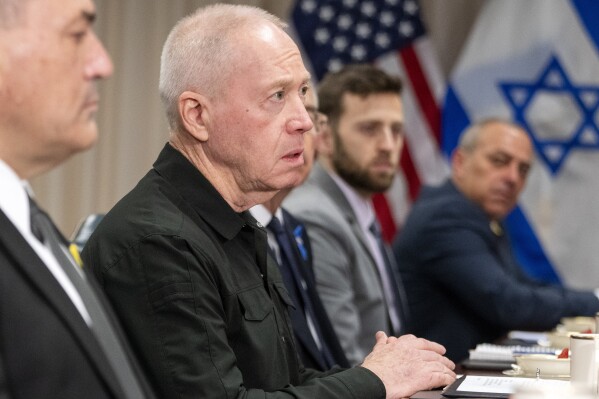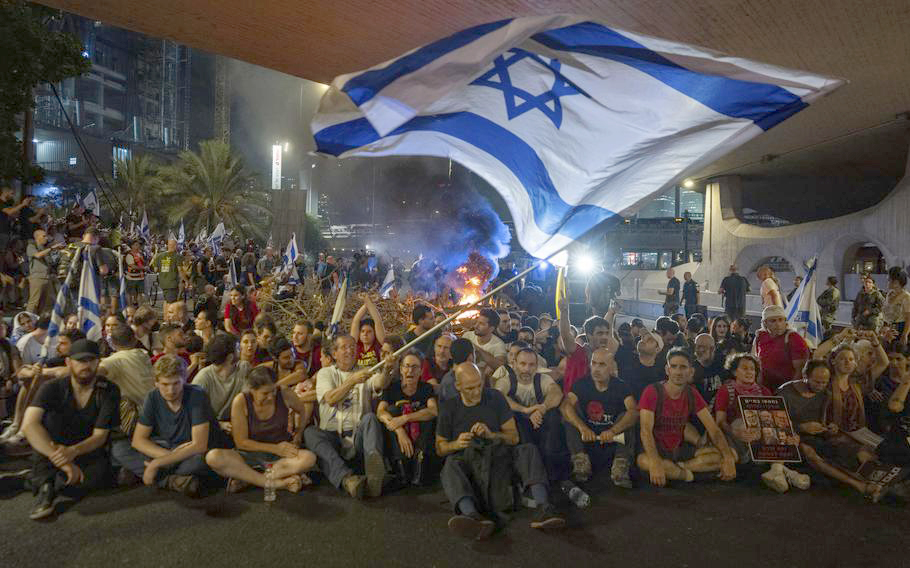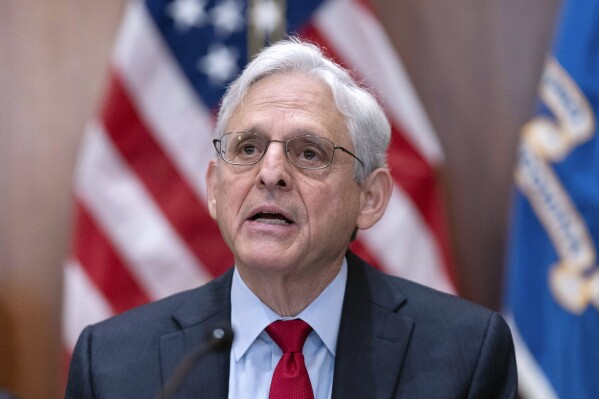|
Getting your Trinity Audio player ready...
|
Edited by: Fern Sidman
In a resolute address to the nation, Israeli Prime Minister Benjamin Netanyahu outlined his government’s strategy for the ongoing conflict with Hamas, emphasizing the critical importance of maintaining control over Gaza’s southern border with Egypt, according to a report on the Jewish News Syndicate web site. Speaking on Monday night, Netanyahu declared that the Israel Defense Forces (IDF) would remain stationed along the Philadelphi Corridor—a narrow, 8.5-mile-long strip of land that has long been a focal point in the struggle to control arms smuggling routes between Gaza and the Sinai Peninsula.
Netanyahu placed a pronounced emphasis on the Philadelphi Corridor’s strategic significance, describing it as the “oxygen of Hamas.” This corridor has historically been a key smuggling route used by Hamas to bring in weapons and supplies, which are essential for the terror group’s military operations. The JNS report indicated that by maintaining a strong military presence in this area, Netanyahu seeks to cut off Hamas’s access to these resources, thereby crippling its ability to rebuild its military strength.
“The axis of evil needs the Philadelphi Corridor; for this reason, we need the Philadelphi Corridor,” Netanyahu stated, framing the control of this border area as crucial not only to Israel’s national security but to the broader fight against what he described as Iran’s “axis of evil.” The prime minister stressed that relinquishing control of this area, as demanded by Hamas during ongoing ceasefire talks, would severely compromise Israel’s security. As per the information provided in the JNS report such a move could lead to the smuggling of remaining hostages out of Gaza, potentially to Iran or Yemen, further complicating efforts to secure their safe return.
Netanyahu’s address also carried a stern warning to Hamas, following the recent execution of six Israeli hostages. The victims—Hersh Goldberg-Polin, Eden Yerushalmi, Almog Sarusi, Alexander Lobanov, Carmel Gat, and IDF Master Sgt. Ori Danino—were brutally murdered by Hamas terrorists, having been shot multiple times in their heads at point blank range. Reports indicate that they had been murdered only days before their bodies were retrieved.

In his remarks, Netanyahu expressed deep sorrow over the loss of these hostages, acknowledging the pain of their families and seeking forgiveness for the government’s failure to bring them home alive. “We were very close, but we were not able to do so,” he said, before vowing that Hamas would face severe consequences for these acts, as was indicated in the JNS report. “Hamas will pay a very heavy price for the six murders,” Netanyahu asserted, reinforcing his government’s commitment to holding the group accountable.
Netanyahu framed the ongoing conflict with Hamas as part of a broader, existential struggle against Iran and its allies, whom he described as the “axis of evil.” He called for national unity, urging Israelis of all backgrounds—left or right, religious or secular, Jews and non-Jews—to come together in the face of a “brutal enemy seeking to destroy us all.” This appeal to unity reflects the intense pressure on the Israeli government to present a united front as it navigates the complexities of war, hostage negotiations, and international diplomacy.
As the conflict continues, the Israeli government faces the dual challenges of maintaining its military objectives in Gaza while also working to secure the safe return of the remaining 101 hostages. Netanyahu made it clear that all efforts in the Gaza Strip are interconnected with the control of the Philadelphi Corridor. This area, he insisted, is not just a tactical necessity but a linchpin in the broader strategy to weaken Hamas and protect Israel’s future.
Netanyahu traced the current security challenges back to Israel’s 2005 disengagement from Gaza, during which the Philadelphi Corridor was left open. As per the information in the JNS report, he argued that this decision enabled Hamas to smuggle in weapons and build up its military capabilities, which it has used in three previous wars against Israel. The premier made it clear that the open border with Sinai allowed Hamas to establish and strengthen its arsenal, facilitating years of conflict that have exacted a heavy toll on both sides.
The prime minister highlighted the importance of Israel’s recent military operations in the Rafah area, particularly the takeover of the Philadelphi Corridor. Netanyahu claimed that these actions marked a turning point in the U.S.-brokered ceasefire negotiations with Hamas. “The first crack came when we went into Rafah and took over the Philadelphi Corridor,” he stated, as was noted in the JNS report. According to Netanyahu, Hamas began to change its stance in negotiations only after realizing that Israel had effectively cut off one of its primary supply lines.
Netanyahu warned, however, that any perceived weakness or pressure on Israel could lead Hamas to revert to its previous tactics. He expressed deep concern over suggestions from some Cabinet members, including Defense Minister Yoav Gallant, that Israel might consider relinquishing control of the Philadelphi Corridor. “As soon as they think there is weakness on our side, or pressure, they’ll go right back,” Netanyahu cautioned, signaling his determination to maintain Israel’s strategic positions in Gaza.
Netanyahu also addressed the psychological warfare campaign orchestrated by Hamas, aimed at shifting blame onto Israel’s leadership. He referenced a document reportedly discovered by Israeli forces in a Gaza tunnel, which allegedly outlined Hamas’s strategy of placing the blame for the ongoing conflict squarely on Netanyahu. JNS reported that despite these tactics, Netanyahu made it clear that his government had made significant concessions during negotiations, agreeing to proposals from U.S. President Joe Biden on multiple occasions. However, he noted that Hamas had consistently rejected these offers, complicating efforts to reach a lasting ceasefire.

A major point of contention in the ongoing conflict is the fate of the 101 hostages—both alive and dead—still held by Hamas in Gaza after more than 300 days. The prime minister reiterated his commitment to bringing the hostages home, while also ensuring that Israel’s security is not compromised in the process.
Netanyahu concluded his address with a call for national unity, urging Israelis to stand together in the face of existential threats. “Together we stand, together we fight, and together, with God’s help, we will overcome,” he declared, reinforcing the message that Israel’s survival depends on both military strength and societal cohesion, the report on JNS said. As the conflict continues, the prime minister’s speech draws attention to the critical importance of maintaining control over Gaza’s borders and the need for unwavering resolve in the face of ongoing challenges.
According to a poll conducted by the Jewish People Policy Institute (JPPI) on September 1, shortly after the tragic news of six Israeli hostages being murdered by Hamas, public sentiment in Israel is split. Forty-nine percent of Jewish Israelis agreed with the statement, “Israel must not relinquish control of the Philadelphi Corridor even at the expense of a hostage deal.” The JNS report suggested that this reflects a strong belief among nearly half of the population that the long-term security provided by maintaining control of the corridor outweighs the immediate humanitarian concern of securing a hostage deal.
In contrast, 43% of those surveyed expressed support for the statement, “Israel should give up control of the Philadelphi Corridor to enable a hostage deal.” This minority underscores the deep moral and emotional dilemma facing the nation, where the value of human life is being weighed against national security imperatives.
A second poll, conducted by Direct Polls on July 24, provided further insight into Israeli public opinion on this issue. This survey asked respondents whether they agreed with the statement, “Israel needs to control in a permanent way the Philadelphi Corridor in order to prevent weapons smuggling from Egypt to terror organizations in the Gaza Strip.” JNS reported that an overwhelming 79% of respondents agreed or “very strongly” agreed with the statement, indicating broad support for maintaining control over the corridor as a means of securing the nation’s borders and preventing future conflicts.
This survey, commissioned by “Gaza Forever,” a movement advocating for the humanitarian evacuation of Gaza’s residents to other countries, reflects a strong consensus on the importance of the corridor in Israel’s defense strategy. Only 6% of respondents disagreed with the need for permanent control of the corridor, while 16% had no position on the matter.
The brutal murder of six Israeli hostages by Hamas has intensified public emotions and led to widespread protests across Israel. On Monday, large-scale demonstrations blocked roads in Jerusalem and Tel Aviv, with protests continuing into Tuesday. These events have heightened the urgency of the debate over the Philadelphi Corridor, as the Israeli public grapples with the tension between securing the nation’s future and addressing the immediate humanitarian crisis of the hostages.
The Histadrut’s decision to call a general strike on Monday marked a significant escalation in the protest movement. The strike, announced by Histadrut Chairman Arnon Bar-David, was intended to send a clear message to the government: the current approach to the hostage crisis is unacceptable.
While the protests and strike represent a large and vocal minority, recent polls suggest that they do not reflect the views of the majority of Israelis. According to a survey conducted by the Jewish People Policy Institute (JPPI), the position of Netanyahu’s government aligns with the prevailing sentiment among its supporters and a significant portion of the Jewish public. The poll indicated strong support for maintaining control over the Philadelphi Corridor, a crucial border area between Gaza and Egypt, even at the expense of a potential hostage deal with Hamas.
This position was reinforced by a vote in Israel’s Security Cabinet on September 29, which supported Netanyahu’s stance that Israel must maintain a military presence along the Philadelphi Corridor indefinitely. The only dissenting voice in the Cabinet was Defense Minister Yoav Gallant, whose opposition to the decision has sparked controversy.

In a significant escalation of its efforts to combat international terrorism, the U.S. Department of Justice announced on Tuesday that it has filed terrorism charges against senior leaders of Hamas for their roles in orchestrating the October 7 massacre that claimed nearly 1,200 lives, including those of over 40 Americans. The charges represent a major step in the U.S. government’s ongoing campaign to hold accountable those responsible for acts of terrorism against American citizens and to protect national security.
JNS reported that Attorney General Merrick Garland, in a recorded message, revealed that the charges target key figures within Hamas, including Yahya Sinwar, Ismail Haniyeh, Mohammed Deif, Marwan Issa, Khaled Meshaal, and Ali Baraka. These leaders are accused of overseeing what Garland described as “a decades-long campaign to murder American citizens and endanger the national security of the United States.”
The newly unsealed complaint against these individuals includes seven counts related to the atrocities committed on October 7. These charges encompass conspiracy to murder U.S. nationals and the use of weapons of mass destruction resulting in death. As was explained in the JNS report, the actions of Hamas on that day led to the deaths of over 1,200 people, the kidnapping of hundreds of civilians. According to the complaint, the brutality of the attacks was underscored by reports of sexual violence, including rape and genital mutilation, used as weapons of terror against Israeli women.
The complaint also highlighted the involvement of Iran and Hezbollah in supporting Hamas, providing crucial backing that enabled the terrorist group to carry out the October 7 attacks.
Attorney General Garland emphasized the Department of Justice’s unwavering commitment to bringing the perpetrators of these heinous acts to justice. “The Justice Department has a long memory,” Garland stated. “We will pursue the terrorists responsible for murdering Americans, and those who illegally provide them with material support, for the rest of their lives.”
The charges announced on Tuesday are part of a broader strategy to dismantle Hamas’s operations and to target every facet of the group’s terrorist activities. The JNS report said that Garland made it clear that these actions are only the beginning, with more efforts expected in the future as the U.S. government continues to pursue those responsible for acts of terror against its citizens.
Among those charged, Ismail Haniyeh, Mohammed Deif, and Marwan Issa are reportedly deceased, while Yahya Sinwar is believed to be in the Gaza Strip. Khaled Meshaal and Ali Baraka, however, are based in Qatar and Lebanon, respectively, complicating efforts to bring them to justice, the JNS report said. The international dimension of this case highlights the challenges faced by the U.S. in prosecuting foreign-based terrorists, particularly those who operate with the protection or support of other states.
On Monday, a day typically reserved for rest and reflection during the U.S. federal holiday of Labor Day, President Joe Biden convened an urgent meeting in the White House Situation Room to address the ongoing hostage crisis involving American citizens held by Hamas.
The administration’s handling of the hostage crisis has drawn sharp criticism from members of Congress, particularly from Republicans who argue that the Biden-Harris administration has failed to take decisive action. Representative Brian Mast (R-Fla.), who has served in both the U.S. and Israeli military, has been particularly vocal. JNS reported that Mast expressed his frustration in a recent statement, questioning why neither Biden nor Harris made a clear commitment to rescue the hostages. He described the administration’s approach as “puzzling,” suggesting that it lacked the necessary resolve to confront Hamas and secure the hostages’ release.
Mast’s criticism extends to the broader U.S. response to the situation in Gaza, accusing the administration of withholding critical weapons from Israel that could have been used to facilitate a rescue operation. Also noted in the JNS report was that he linked this perceived inaction directly to the deaths of American citizens, including Hersh Goldberg-Polin, the Israeli-American who was killed while held hostage by Hamas.




